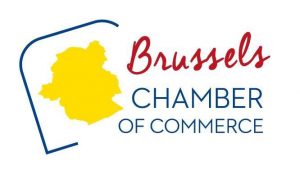A dedicated SME helpdesk making it easy for SMEs to access trade defence instruments.
The SME Trade Defence Helpdesk supports SMEs in the EU to both protect and enforce their rights against unfair trade practices i.e. dumping and subsidies by non-EU countries.
The Commission has committed to facilitate access to trade defence instruments for SMEs through a dedicated helpdesk, providing information about the procedures and the deadlines applicable in legislation. Furthermore, the Commission has published a Guide for SMEs and it has also issued a more concise Online course for SMEs.
Defending your business against dumped or subsidised imports
If you are a small business producing in the EU, your company may be harmed by low-priced imports from non-EU countries which are dumped or subsidised.
The Commission may be able to help you address this unfair competition and take action by using the EU’s trade defence instruments.
Complaints
This process starts with a complaint lodged by European industry with the European Commission, which must contain evidence to support the allegations of dumping or subsidisation.
A guide to complaints explains the type of information which must be provided.
Standing
Any complaint must be lodged on behalf of at least 25% of the total EU production of the product which the complaint is about. This is called ‘standing’. You should contact your representative industry association about this. The European Commission sends a standing form to EU producers to check that these requirements are met.
To help small businesses with this process, a simplified form is used.
Investigations
The EU opens investigations by publishing a Notice of Initiation in the Official Journal of the European Union. This notice sets out the background to the investigation, as well as the important information about deadlines for replying to questionnaires, applying for hearings, etc.
An executive summary of the complaint/request is published on DG Trade’s website.
Importing or using a product which may be affected by anti-dumping or anti-subsidy action
You can participate in the investigation as an interested party. This lets you express your views as to how anti-dumping or anti-subsidy measures might affect your business.
When the EU launches a trade defence investigation you can choose to be involved, in which case you will be asked to:
- register with the non-EU authority;
- fill in a questionnaire, and;
- allow visits to your premises in the event of anti-dumping and anti-subsidy investigations.
Search for ongoing investigations against EU imports (for each ongoing investigation, you will find questionnaires issued to the interested parties)
What to do if your company is accused of exporting dumped or subsidised products outside the EU
If your company is an SME exporting to a non-EU (’third’) country, you may be affected by an anti-dumping, anti-subsidy or safeguard action by that country. The European Commission may also be able to guide you through the process.
The guide to third country investigations has detailed information on what you can do and how to proceed.
Contact
Contact the SME Trade Defence Helpdesk
Source: DG Trade





